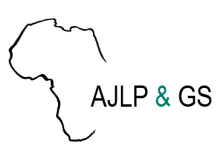/ library resources
Showing items 1 through 9 of 12.Zambia is one of the poorest countries in Africa. Despite substantial reform during the 1990s, the economy has remained heavily dependent on urban-based mining. Copper's long-standing dominance led to a strong bias against agriculture, which undermined the sector's growth and export potential.
Like in a number of other developing countries, the issue of illegal occupation of land is evident in Zambia’s cities. This problem has continued to exist, despite the existence of laws and public institutions meant to address the issue.
In developing countries, forests play an important role in supplying goods and services. These ecosystems are under many stresses due to unsustainable management practices, lack of clarity on tenure and access rights, and persistent pressure for land-use change.
This report is based on the proceedings of the Technical Consultation on Gender, Property Rights and Livelihoods in the Era of AIDS, organized by FAO in November 2008.
In September 2008, the FAO-Dimitra project organised its third workshop with all its partners in Brussels, on the theme:“Information and communication strategies to fight gender inequality as regards land access and its consequences for rural populations in Africa”.
HIV and AIDS has exacerbated the vulnerability of orphaned children who are suffering in a vicious cycle of poverty, food insecurity, lack of access to education, and insecure livelihoods.
The report documents poverty in Zamia
along a number of dimensions, including material
deprivation, human deprivation, vulnerability, destitution,
and social stigmatization. The report identified a number of
Paginação
Land Library Search
Through our robust search engine, you can search for any item of the over 73,000 highly curated resources in the Land Library.
If you would like to find an overview of what is possible, feel free to peruse the Search Guide.




